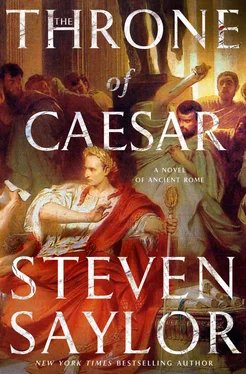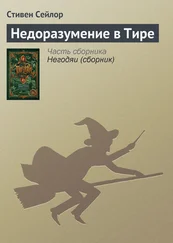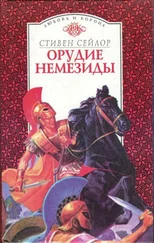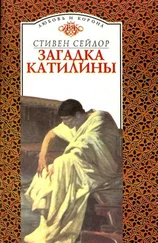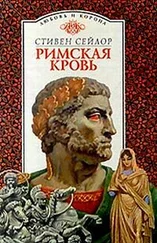Стивен Сейлор - The Throne of Caesar
Здесь есть возможность читать онлайн «Стивен Сейлор - The Throne of Caesar» весь текст электронной книги совершенно бесплатно (целиком полную версию без сокращений). В некоторых случаях можно слушать аудио, скачать через торрент в формате fb2 и присутствует краткое содержание. Год выпуска: 2018, Издательство: St. Martin's Press, Жанр: Исторический детектив, на английском языке. Описание произведения, (предисловие) а так же отзывы посетителей доступны на портале библиотеки ЛибКат.
- Название:The Throne of Caesar
- Автор:
- Издательство:St. Martin's Press
- Жанр:
- Год:2018
- ISBN:нет данных
- Рейтинг книги:5 / 5. Голосов: 1
-
Избранное:Добавить в избранное
- Отзывы:
-
Ваша оценка:
- 100
- 1
- 2
- 3
- 4
- 5
The Throne of Caesar: краткое содержание, описание и аннотация
Предлагаем к чтению аннотацию, описание, краткое содержание или предисловие (зависит от того, что написал сам автор книги «The Throne of Caesar»). Если вы не нашли необходимую информацию о книге — напишите в комментариях, мы постараемся отыскать её.
The Throne of Caesar — читать онлайн бесплатно полную книгу (весь текст) целиком
Ниже представлен текст книги, разбитый по страницам. Система сохранения места последней прочитанной страницы, позволяет с удобством читать онлайн бесплатно книгу «The Throne of Caesar», без необходимости каждый раз заново искать на чём Вы остановились. Поставьте закладку, и сможете в любой момент перейти на страницу, на которой закончили чтение.
Интервал:
Закладка:
“You’re a wise and clever man, Papa, but you’re not a seer, like Tiresias.”
“No. More like Oedipus.”
“If you wish. Oedipus was certainly clever, and famous for it, like you. He solved the riddle of the Sphinx.”
“Yet he couldn’t see the crime in front of his nose. He was blind to his own actions. What a horrid tale, that any man should kill the father he never knew and marry his own mother—and produce a family of fratricides!”
“Poems and plays are mostly horrid tales, Papa. Or hadn’t you noticed?”
“Yes, but the incest of Oedipus with his mother…”
“Is in a category by itself, I suppose.”
“Is it? Caesar wrote a tragedy in verse about Oedipus; did you know that? Cinna’s famous poem was all about incest, too. Why do people crave such stories?”
“Perhaps they crave what they cannot have in reality.”
“Do they?” I shook my head. “Nothing seems to make sense anymore. My head is filled with such horrors—Caesar stabbed to death in front of me, riots in the Forum, Cinna’s horrible end … poems and plays about the most forbidden things imaginable … yet nothing connects with anything else. It’s all loose ends.”
“But you know that isn’t true, Papa. You’ve always taught me otherwise. In the end, there are no loose ends. Everything connects.”
“What if that’s not true? What if there’s no sense to anything?”
“Sleep on it, Papa. And pray not to have unpleasant dreams.”
The brazier abruptly burned low and then emitted a last puff of smoke. It was time for bed.
* * *
I slept. I dreamed.
I was in a dim, formless place. I heard my father speaking to me. “It’s best to die with your head on your shoulders, son. So the priests say. Otherwise it goes badly for you in Hades.”
My father actually said such a thing to me when I was very small. I would later realize he was only half serious, teasing me, but the words made a lasting impression. For the rest of my life, whenever I saw a severed head—which was far too often, as when the dictator Sulla filled the Forum with the heads of his enemies displayed on pikes—I remembered those words.
In the dream, mists parted, and I found myself on a low spit of land with a muddy shore, beyond which a flat gray sea stretched to a featureless gray horizon. All was lit by a soft light too weak to cast shadows.
“These are the Shores of Ugliness,” said a voice in my ear. I turned, but there was no one there.
A foul odor permeated the air. It was the smell of a slaughterhouse or a battlefield the day after. I choked at the stench of clotted blood and flesh beginning to rot.
I mounted a low dune, and from the top saw a vast plain before me with no living thing, not a single tree or blade of grass. But there was movement everywhere, and by the feeble light I perceived to the left a multitude of headless bodies, wandering endlessly and aimlessly, blindly bumping into one another. I looked to the right and saw what I took to be a field of cabbages. Then I realized that the cabbages were in fact heads. They stared upward with wide-open eyes, and their mouths moved constantly, shaping words with no breath to give them sound. I knew they were calling out to their bodies, but the heads had no way to speak, and the bodies no way to see or hear.
I heard a flapping of wings. Hovering above the endless mass of bodies and heads, I saw the three Furies: Alecto, Megaera, Tisiphone. They had snouts like dogs and bulging, bloodshot eyes that glowed like coals. Snakes writhed atop their heads. Their bodies were as black as coal, as were their leathery, batlike wings. Their gnarled hands and feet were like the black talons of some giant bird. Each clutched in her right hand a scourge with brass-studded strips of leather. Occasionally one of the sisters would swoop down and wield her scourge against the headless shoulders of a wandering body, making it grovel and writhe in pain. All three sisters would cackle with delight at the sight of such suffering. Then another would swoop down, snatch one of the heads with her feet, fly high in the air, wheeling like a vulture, then drop the head. All three would flap their wings and cackle as the head opened its mouth in a long, soundless scream and plunged to earth.
“This is the place in Hades where the beheaded dwell for eternity,” said the unseen voice.
I shuddered, imagining such endless cruelty. “Is Cinna here?”
“He is.”
“Buy why? What crime could be so horrible that he deserves such punishment?”
“You know.”
“I don’t.”
“You do. You know, and yet you don’t know. You see the truth, yet you look away.”
“Where is he? Let me speak to him.”
Some unseen force pushed me forward into the grotesque cabbage patch of heads. I lurched and stumbled, trying not to step on them. Then I saw the head of Cinna, staring up at me.
“Why are you here?” I asked. “Why did the Furies come for you and bring you to this place?”
His lips moved but made no sound. It was just as when I had seen him last, when his head was held aloft in the Forum. I remembered the fist that had clutched him by the hair—a gnarled, black, clawlike hand, covered with blood—the hand of a Fury? Had they been in the crowd, moving among us, guiding the savagery, delighting in it—even taking part? I reeled at the enormity of it. Had the Furies themselves ripped Cinna to pieces, then carried off his body, flying away with their batlike wings, clutching the various parts of Cinna with black talons? No wonder he had vanished without a trace!
Something changed—not the vague light or the shuffling sound of those aimlessly wandering bodies, but the smell. On the thick, still air I caught a whiff of burning myrrh. But the scent did nothing to relieve the slaughterhouse stench. If anything, it made the heavy air even harder to breathe.
I saw the misery deepen on Cinna’s face. Tears streamed from his eyes. He wept without making a sound.
DAY THIRTEEN: MARCH 22
XLVII
“But this can’t be right,” I said, squinting at the scrap of parchment by the early morning light, as if the words might change if I looked at them hard enough. The messenger had arrived at the crack of dawn. I was already up, having awakened from my nightmare. The message was unsigned, but the slave had been sent by Fulvia.
I shook my head. “Cinna’s funeral can’t be today. There should be at least a few days of mourning. It’s not decent.”
“But if there’s no body to be shown to visitors, why wait to have the funeral?” said Diana, yawning and stretching her arms. She was still dressed in a sleeping gown of pleated linen. The fabric was rather thin, especially when stretched across her breasts by her upraised arms. The resulting transparency no doubt pleased her husband but made her father a bit uncomfortable.
I stared at the message, which simply said that I should arrive at Cinna’s house an hour before midday if I wished to be present at his funeral. “Fulvia was behind Caesar’s funeral, and she’s behind this one as well,” I said.
“What of it, Papa? The two events aren’t remotely similar. Tens of thousands of people wanted to attend Caesar’s funeral. Veterans rushed to Rome from all over Italy. But for Cinna—well, famous as he may have been among poetry lovers, how many people would risk coming to the city now, with all the rioting, and to attend a funeral with no body and no proper funeral pyre?”
“Is it the corpse people come for, then, and the flames?”
“That means more than speeches to most people, yes: to see the body, and then watch it turn to ashes.”
“Is that what a funeral is really about? To witness flesh become ash?”
Diana shrugged. “You can remember the dear departed at any time and in any place, and talk about him whenever and with whomever you wish. But only at a funeral can you see the purification of the mortal remains.”
Читать дальшеИнтервал:
Закладка:
Похожие книги на «The Throne of Caesar»
Представляем Вашему вниманию похожие книги на «The Throne of Caesar» списком для выбора. Мы отобрали схожую по названию и смыслу литературу в надежде предоставить читателям больше вариантов отыскать новые, интересные, ещё непрочитанные произведения.
Обсуждение, отзывы о книге «The Throne of Caesar» и просто собственные мнения читателей. Оставьте ваши комментарии, напишите, что Вы думаете о произведении, его смысле или главных героях. Укажите что конкретно понравилось, а что нет, и почему Вы так считаете.
